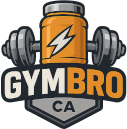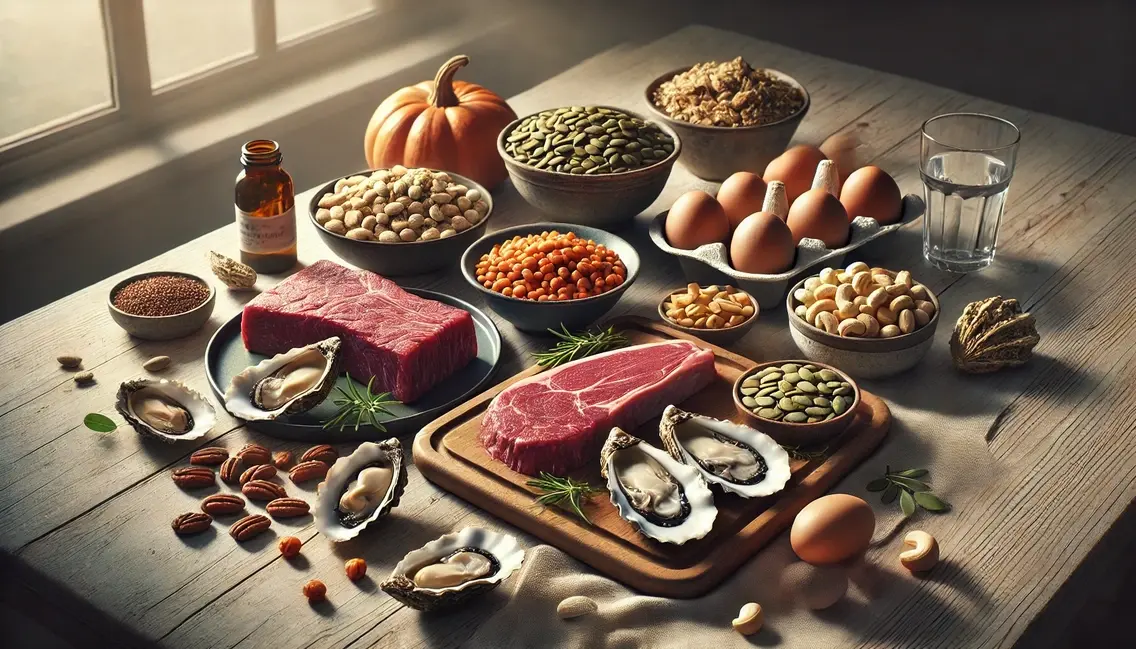Zinc: The Secret Immune Booster You’re Overlooking
Imagine having a powerful ally in your corner, quietly working to fortify your immune system, speed up wound healing, and even enhance your skin health. This isn't some futuristic magic pill; it's zinc—an essential mineral with benefits that often go unnoticed. Despite its small size in the supplement world, zinc plays a massive role in keeping our bodies functioning smoothly. But here's the kicker: while zinc is a daily hero for many biological processes, it’s a supplement that demands respect.
For instance, while taking zinc can reduce the duration of the common cold and boost your immune response, too much can lead to potential side effects like nausea or a shocking copper deficiency. So how much is just right, and what makes zinc such a vital, yet often underestimated, part of your health regimen?
In this article, we will unveil the truth about zinc, including the best forms to take, the optimal dosages, and the scenarios where its benefits truly shine. Get ready to discover the science-backed secrets that could transform your understanding of this powerhouse mineral.
Let's uncover why zinc might just be the game-changer your health routine has been missing!
Health benefits of Zinc
Zinc is an indispensable mineral known for its integral roles in maintaining numerous physiological processes. From strengthening the immune system to facilitating tissue repair, this essential nutrient is crucial for overall well-being and optimal bodily functions.
Key Health Benefits
- Enhances Immune Function
Zinc is pivotal in supporting immune health, playing a critical role in the production and activation of T-lymphocytes, a type of white blood cell that manages immune response. Sufficient zinc levels are linked to enhanced resistance against infections.
- Aids in Wound Healing
Involved in cell division and collagen synthesis, zinc is vital for tissue repair. It is frequently utilized in medical contexts to accelerate healing from injuries, burns, and skin ulcers.
- Supports DNA Synthesis and Cell Division
Zinc is essential for DNA replication and cell division, processes that are crucial for healthy cell function. This is particularly significant during growth phases such as pregnancy, childhood, and adolescence.
- Reduces Duration of the Common Cold
Zinc supplementation at the start of cold symptoms can lessen both the severity and duration of the illness, largely due to zinc’s ability to inhibit viral replication and strengthen immune defenses.
- Promotes Reproductive Health
For reproductive health, zinc is crucial in impacting sperm production and testosterone levels in men, while also being necessary for ovulation and menstrual health in women.
Incorporating Zinc for Optimal Health
As a cornerstone of many biological processes, zinc delivers a myriad of health benefits essential for maintaining wellness. For those pursuing a balanced nutritional profile or seeking to support their immune system and enhance skin health, Jamieson's Zinc 50 mg tablets offer a reliable choice. This supplement supports your body's needs, helping you stay resilient and vibrant. Let's proceed to explore dietary sources and adequate zinc intake ensuring you achieve your health goals effortlessly.
Dietary Sources of Zinc
Understanding where to find zinc in your diet is crucial for your overall health, as this trace mineral plays vital roles such as supporting immune function and aiding wound healing. Below, we dive into some of the optimal natural sources rich in zinc.
Natural Sources of Zinc
- Oysters
Oysters stand out as the richest natural zinc sources, offering significantly more of this nutrient per serving than any other food. They come highly recommended, not only for their zinc content but also for their other beneficial nutrients like protein and omega-3 fatty acids.
- Red Meat
Beef, lamb, and pork provide substantial amounts of zinc, alongside high-quality protein and essential B vitamins. This makes them a robust option for those looking to enhance their zinc intake through animal products.
- Poultry
Dark meat from chicken and turkey is a solid source of zinc, offering a well-balanced blend of zinc, protein, selenium, and other essential nutrients.
- Beans and Legumes
Chickpeas, lentils, and beans contain moderate amounts of zinc. Though they provide less zinc than animal sources, they remain a valuable component of a balanced plant-based diet.
- Nuts and Seeds
Pumpkin seeds, cashews, and almonds rank among the best plant-based zinc sources. They're particularly beneficial as snacks or meal enhancements, delivering a nutritious boost.
- Dairy Products
Milk, cheese, and yogurt provide absorbable zinc and additional nutrients like calcium, which benefits bone health.
Challenges of Obtaining Enough Zinc
Despite zinc's presence in these diverse food sources, meeting your daily requirements entirely through diet alone can prove challenging. Factors such as dietary restrictions, food availability, and absorption rates can all impact how much zinc your body effectively utilizes. This is particularly true for vegetarians and vegans, as plant-based sources offer lower bioavailability compared to animal-derived options.
For those facing these challenges, considering a supplement can be beneficial. Support your immune system and promote healthy skin with Jamieson's Zinc 50 mg tablets, which offer a convenient and reliable way to ensure adequate daily zinc intake. By incorporating a supplement, you can more confidently meet your nutritional needs and support overall health.
Daily Intake for Zinc
Zinc is an indispensable mineral that plays several pivotal roles in the body, including supporting immune function, wound healing, DNA synthesis, and cell division. Its involvement in numerous enzymatic reactions highlights the necessity of maintaining an adequate daily intake for overall health, particularly for a robust immune system.
Recommended Daily Intake
- Infants 0-6 months: 2 mg per day (AI)
- Infants 7-12 months: 3 mg per day
- Children 1-3 years: 3 mg per day
- Children 4-8 years: 5 mg per day
- Children 9-13 years: 8 mg per day
- Adolescents 14-18 years (boys): 11 mg per day
- Adolescents 14-18 years (girls): 9 mg per day
- Adults (men): 11 mg per day
- Adults (women): 8 mg per day
- Pregnant teens: 12 mg per day
- Pregnant adults: 11 mg per day
- Breastfeeding teens: 13 mg per day
- Breastfeeding adults: 12 mg per day
Meeting Your Daily Zinc Needs
Achieving consistent zinc intake involves consuming a well-rounded diet rich in meat, shellfish, legumes, seeds, nuts, and dairy products. Consistency in meeting the recommended zinc levels is vital for maintaining your body's optimal function, particularly in preserving immune defenses and ensuring healthy growth and repair processes.
To address these nutritional goals effectively, consider incorporating quality supplements into your routine when dietary intake falls short. For those looking to support their immune system and promote healthy skin, Jamieson's Zinc 50 mg tablets are a reliable choice to ensure you meet your daily zinc needs.
Being aware of the symptoms of zinc deficiency is crucial, as early detection and correction can prevent significant health issues. Understanding how to address these deficiencies effectively can make all the difference in achieving better health.
Deficiency of Zinc
Zinc is an indispensable mineral vital for numerous biological processes, including enzyme function, immune defense, and cellular repair. Falling short on zinc can disrupt these processes, leading to significant health challenges that affect overall well-being.
Deficiency Symptoms and Consequences
- Weakened Immune Function
The immune system relies heavily on zinc to develop and operate effectively. Without sufficient zinc, you become more susceptible to infections and illnesses, as your immune cells can't perform their protective roles efficiently.
- Delayed Wound Healing
Zinc is integral to maintaining skin health and facilitating tissue repair. A deficiency compromises collagen synthesis, meaning wounds heal more slowly, prolonging recovery times and increasing the risk of infection.
- Hair Loss
Healthy hair growth hinges on adequate zinc levels. Deficiency can cause hair to thin or fall out since zinc is essential for the function of keratinocytes, the cells responsible for hair follicle health.
- Diarrhea
A lack of zinc can compromise gut health, increasing vulnerability to gastrointestinal infections that result in diarrhea. This underscores the mineral's role in gut integrity and immune functionality.
Preventing Zinc Deficiency
The negative impacts of zinc deficiency can be quite serious. To mitigate these risks, ensure your diet includes foods rich in zinc, such as meat, shellfish, legumes, and seeds. Understanding and recognizing symptoms early, along with consulting healthcare professionals for appropriate blood tests, is critical to managing your zinc levels effectively.
For those worried about not getting enough zinc from diet alone, one option is to enhance your zinc intake through supplementation. Support your immune system and promote healthy skin with Jamieson's Zinc 50 mg tablets, a reliable choice for boosting zinc levels and alleviating deficiency-related concerns.
Curious about common misconceptions and practical concerns regarding zinc? Let's dive into frequently asked questions to clear up any doubts about zinc supplementation and intake management.
Conclusion
As we wrap up our exploration of zinc's substantial yet often understated role in our health, it becomes clear that this mineral is a formidable staple in our wellness arsenal. Zinc is more than just a minor player; it is a cornerstone of immune support, skin health, and overall physiological balance. Yet, like many powerful nutrients, it demands respect and mindful consumption. The right balance can transform your health, making zinc not just a supplement, but a strategic ally in your fitness journey.
Now, equipped with this knowledge, ask yourself: Is zinc the missing piece in your health puzzle? Will you reassess your diet to include more zinc-rich foods, or consider supplementing to maintain optimal levels? The implications of zinc stretch far and wide, offering potential benefits that could significantly enhance your health outcomes.
Join the conversation and share your experiences with zinc—what has it improved in your life, and where do you find your favorite sources? Remember, health is a communal journey, and your story could be the inspiration someone else needs. By engaging in this dialogue, we empower not only ourselves but also those around us.
Every small decision contributes to the bigger picture of your health. So why not start small, and see where a zinc boost can take you? Embrace the change, spread the knowledge, and take the next step in your health adventure. Your body—and your future self—will thank you.

